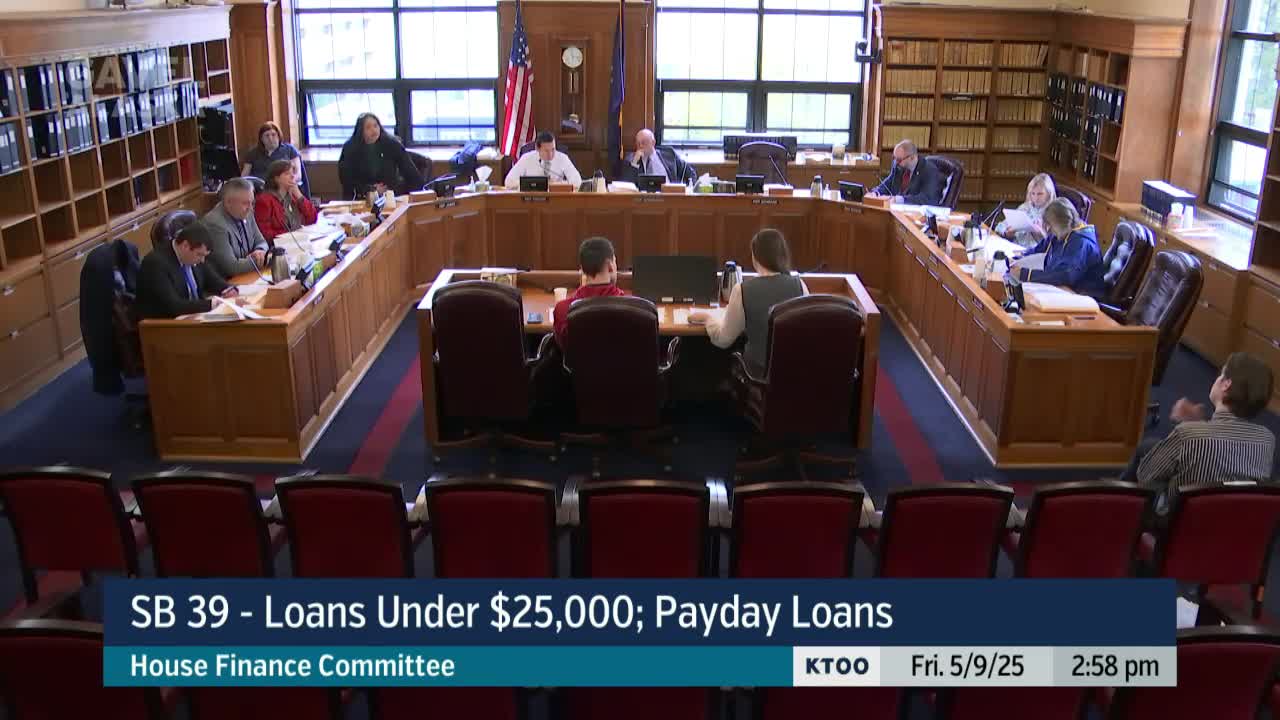Tracy Reno explains Alaska's payday loan regulations and borrower options
May 09, 2025 | 2025 Legislature Alaska, Alaska
Thanks to Scribe from Workplace AI , all articles about Alaska are free for you to enjoy throughout 2025!

This article was created by AI using a video recording of the meeting. It summarizes the key points discussed, but for full details and context, please refer to the video of the full meeting. Link to Full Meeting
Tracy Reno, Chief of Examinations with the Division of Banking and Securities, clarified that payday loans in Alaska operate on a 14-day cycle, with a maximum loan amount of $500. Borrowers have the option to extend their loans, or "roll them over," up to two consecutive times. This means that if a borrower cannot repay the loan by the due date, they can request an extension, provided they do so before the deadline.
A key point raised during the meeting was the structure of fees associated with these loans. Unlike traditional loans that accrue interest, payday loans in Alaska involve a flat fee system. For instance, a borrower taking out a $500 loan would incur a $5 origination fee and a 15% flat fee, leading to an effective annual percentage rate (APR) of approximately 16% if the loan is rolled over for a month.
The committee also discussed the recourse available to lenders when borrowers default on their payments. Reno emphasized the importance of communication, stating that borrowers must notify their lenders if they are unable to make payments. Alaska law allows for the renewal of loans and mandates that lenders offer payment plans to help borrowers manage their debts without accruing additional fees.
This discussion highlights the ongoing efforts by state officials to ensure that payday lending practices are transparent and fair, providing necessary support to residents while also protecting them from excessive financial burdens. As the committee continues to evaluate these regulations, the outcomes will be crucial for many Alaskans who rely on payday loans for immediate financial relief.
Converted from 05/09/2025 01:30 PM House FINANCE meeting on May 09, 2025
Link to Full Meeting
Comments
View full meeting
This article is based on a recent meeting—watch the full video and explore the complete transcript for deeper insights into the discussion.
View full meeting
